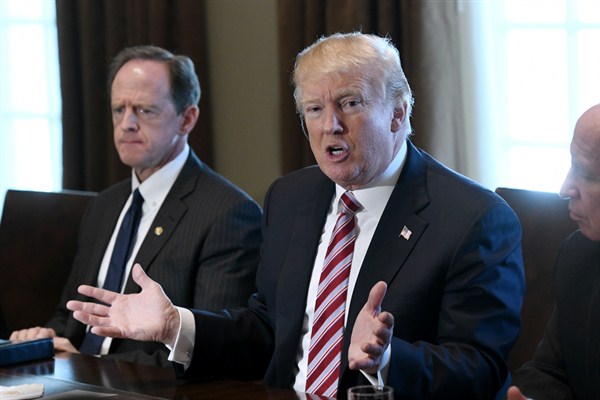The U.S. Constitution gives Congress the power to regulate trade, and for more than a century it did so with gusto. Then, grasping for ways to escape the Great Depression and reverse the downward economic spiral that followed the protectionist Smoot-Hawley Tariff Act, which passed in 1930, Congress delegated some of its trade power to the executive branch. In subsequent decades, Congress provided additional authorities allowing the president to control trade policy. Now, however, with concerns about President Donald Trump’s aggressive trade policy moves—imposing a range of tariffs on close allies and rivals alike, and threatening more—there are calls to shift some of that authority back to Congress.
As the United States celebrates the anniversary of its founding this week, it seems like a good time to review history and see how and why the governance of trade evolved the way it has in Washington. This history suggests strongly that, while some rebalancing is desirable, Congress should exercise great caution in reclaiming its power to regulate trade.
Until the 1930s, Congress set import tariffs through periodic legislation. As described in the fascinating—for trade wonks anyway—new book by Douglas Irwin, an economics professor at Dartmouth, the process often involved legislators going line by line through the tariff schedule to ensure that enough legislators got something for their constituents that the bill would pass. This “logrolling” process, whereby representatives traded their votes for tariffs based on what it meant for their constituents, reached its nadir with the Smoot-Hawley legislation of 1930. While economic historians have revised earlier conclusions that the global outbreak of protectionism and plummeting trade that followed the law caused the Great Depression, there is little doubt that it contributed to making the economic disaster deeper and longer than it would otherwise have been.

